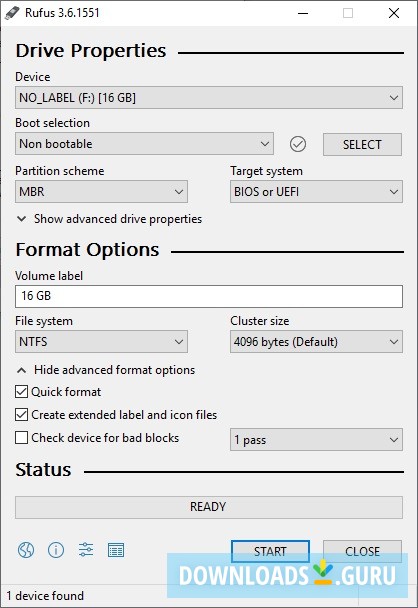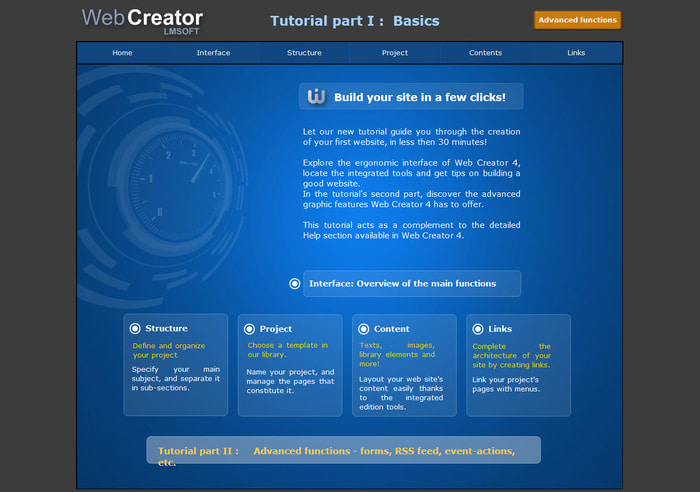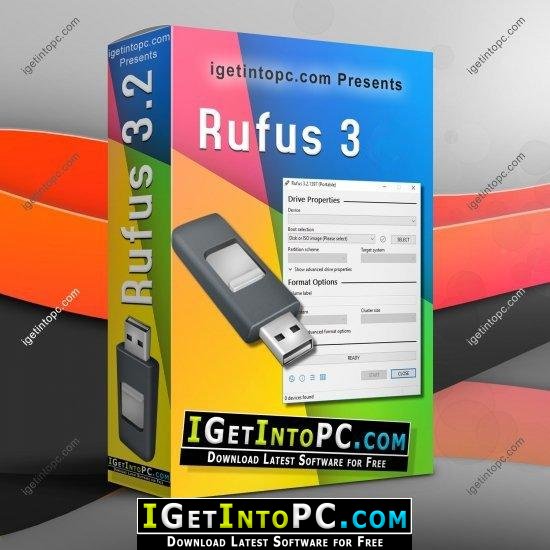



Plus, you can set the quick format mode, create an extended label and icon files, as well as create a bootable disk using an ISO or various other disc image types.Īdvanced tweaks can make Rufus list fixed (non-flash) or unpartitioned USB flash disks, add fixes for old BIOS (e.g. Compatibility options for old BIOSīasic formatting options enable you to check the device for bad blocks and select the algorithm type (from 1 to 4 passes). Be sure to save all important data, because the USB drive is formatted and everything is removed in the process. You can select a device, partition scheme and target system type, file system type ( FAT32, NTFS, UDF, exFAT), cluster size, and new volume label.Ĭonnected devices are detected and selected from a drop-down menu. The tool is wrapped in a user-friendly interface that resembles the Format panel found in Windows built-in features. It provides standard and advanced options alike, to suit the preferences of all skill levels. Rufus is a small-sized app that enables users to format USB flash disks and create bootable drives rapidly. What's New in Version 4.Installing an operating system from a USB drive is much more convenient than from a disc, and a bootable drive even enables you to work from a system that does not have an OS installed. you need to flash a BIOS or other firmware from DOSĭespite its small size, Rufus provides you with everything you need!Īpart from DOS, which is always available, here is a non exhaustive list of ISOs that Rufus can create a bootable USB drive with:Īrch Linux, CentOS, Clonezilla, Damn Small Linux, Debian, Fedora, FreeDOS, Garuda Linux, Gentoo, GParted, Hiren's Boot CD, LiveXP, Knoppix, KolibriOS, Kubuntu, Linux Mint, Manjaro Linux, NT Password Registry Editor, OpenSUSE, Parted Magic, Partition Wizard, Raspbian, ReactOS, Red Hat, rEFInd, Rocky Linux, Slackware, Super Grub2 Disk, Tails, Trinity Rescue Kit, TrueNAS CORE, Ubuntu, UEFI Shell, Ultimate Boot CD, Windows XP, Windows Vista, Windows 7, Windows 8/8.1, Windows 10, Windows Server 2019, Windows 11įor more info, source (GPL v3), please visit.you need to work on a system that doesn't have an OS installed.you need to create USB installation media from bootable ISOs (Windows, Linux, EFI, etc.).

It can be be especially useful for cases where: Rufus is a Windows utility that creates bootable USB flash drives, using DOS or user provided ISO images.


 0 kommentar(er)
0 kommentar(er)
